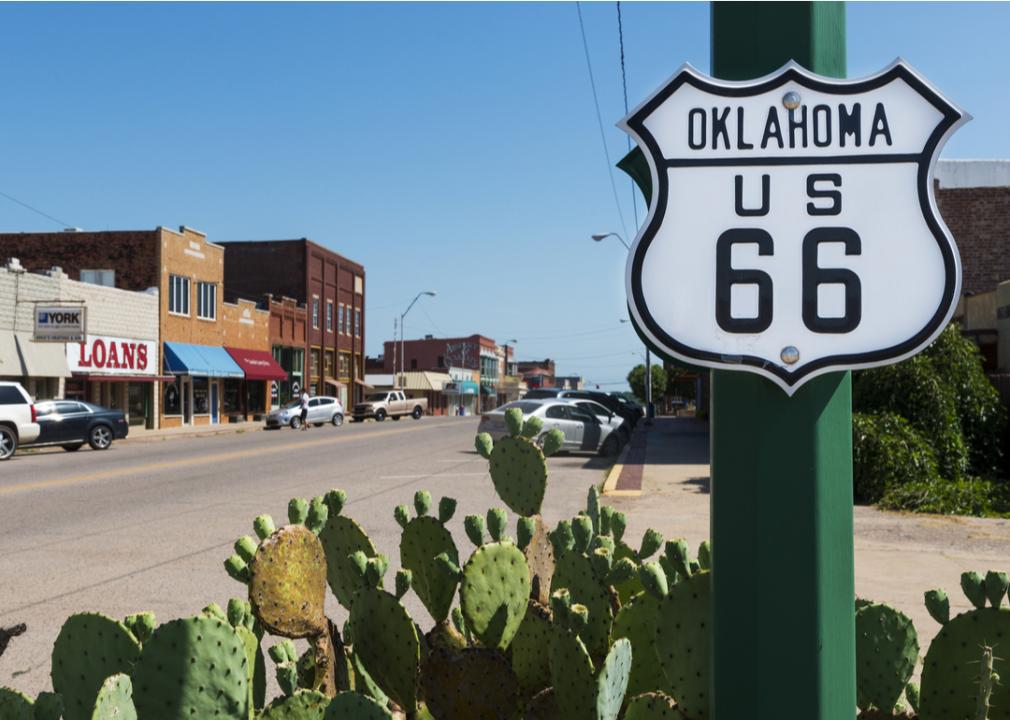What to know about workers’ compensation in your state

Andrey_Popov // Shutterstock
What to know about workers’ compensation in your state
Workers’ compensation, which can provide cash and medical care to employees injured on the job, and benefits to survivors in cases of a work-related death, began with a federal program in 1908. It gave benefits to civilian workers whose jobs were hazardous and became the first kind of social insurance established across the United States.
By 1916, the rest of the federal workforce was covered. States meanwhile were enacting their workers’ compensation laws. All but six states and the District of Columbia had them by 1921.
Today, programs exist in all 50 states, the District of Columbia, Puerto Rico, and the U.S. Virgin Islands.
The details of each program vary by state, and requirements and regulations vary. Four states—Ohio, North Dakota, Washington and Wyoming—require the insurance be obtained through a state-administered fund rather than through a private insurer. Another option is to self-insure for approved businesses. Most states require some businesses to provide coverage and can levy substantial fines for failing to comply. South Dakota and Texas leave the choice to businesses, although Texas makes an exception for construction companies with a government contract.
Workers’ Compensation Benefits, Costs, and Coverage, an October 2021 report from the National Academy of Social Insurance, found that total benefits paid to employees rose by 0.4% from 2015 to 2019. Cash benefits rose by 2%, but medical benefits fell by 1.1%. Standardized benefits fell— cash by 14% and medical benefits by 16.7%—over the same time period.
Simply Business reviewed rules, statistics, and other information about workers’ compensation insurance—including the comprehensive breakdown by the National Federation of Independent Business—to offer a breakdown of what workers’ comp requirements in each state. Rules are subject to updates periodically, so it’s important to stay up-to-date based on your trade and location.
![]()

Bob Pool // Shutterstock
Alabama
Businesses with five or more employees must have workers’ compensation coverage. Sole proprietors, or individuals who run their own business, typically do not have to carry coverage. Nor do businesses with four or fewer full-time or part-time employees generally unless they build single-family, detached houses, considered a particularly at-risk industry. Those employing household help, farmworkers, or so-called casual workers, those who are hired when needed, can provide coverage if they choose. Alabama does not have a state-administered fund at this time.

Marc Cappelletti // Shutterstock
Alaska
Alaska generally requires anyone who employs at least one person to have workers’ compensation coverage, which can be through the state’s fund, but there are a number of exceptions based on the kind of work performed. Those include sole proprietors and partners, officers of a nonprofit organization, part-time babysitters, commercial fishermen and women, and cleaners who do not work commercially. Also typically exempt are harvest laborers, officials for amateur sporting events, some taxi drivers and entertainers, and selected part-time help. Corporate officers can exclude themselves.

Brandon Burris // Shutterstock
Arizona
Arizona mandates workers’ compensation coverage for all businesses that hire at least one person, even if they are family members. When is workers comp insurance typically not needed? Working partners, domestic workers in your home, independent contractors and so-called casual workers, hired on an at-need basis, need not be covered. Sole proprietors can choose not to have coverage. Fines for failing to provide coverage start at $1,000 and can rise to $10,000 for a third instance within five years.

Trong Nguyen // Shutterstock
Arkansas
Workers’ compensation coverage is mandated for most employers with three or more workers in Arkansas. The state, however, warns of exceptions to the three-or-more requirement and to check with authorities to confirm whether it is required. Farm laborers, real estate agents, and others are typically exempt. Employers that fail to pay compensation may be subject to a fine of up to $10,000.

Rigucci // Shutterstock
California
California requires workers’ compensation coverage be carried by all employers, even if they employ only one person or are corporate officers or directors. Employers based outside of California could also be required to provide coverage if their employees work regularly in the state. Two exemptions: corporate officers or directors who own a company fully and sole proprietors without any employees. Failing to have workers’ compensation can result in a fine of not less than $10,000, imprisonment in a county jail, or both. In addition, the state can impose penalties of up to $100,000. California offers a state-administered fund.

Lauren Orr // Shutterstock
Colorado
Employers with at least one full-time or part-time worker must have coverage. But there are a number of exemptions, among them those who do maintenance or repair work for less than $2,000 a year, real estate agents and brokers who are paid by commission, independent contractors who have no employees, and some drivers. Sole proprietors and corporate officers can opt out. A business without coverage can be closed and fined up to $500 for every day without insurance. If a worker is hurt, the employer must pay the claim plus an additional penalty of 25% of the worker’s benefits.

James Kirkikis // Shutterstock
Connecticut
Connecticut exempts businesses that can self-insure from workers’ compensation coverage. All others that have at least one full- or part-time or contract employee must provide it. Exceptions include corporate officers who can opt out, sole proprietors, partners, and employees who work in a home for 26 hours or less a week. A business without proper coverage can be fined $300 a day for each worker.

Real Window Creative // Shutterstock
Delaware
Employers with at least one employee must provide coverage in Delaware, though independent contractors are exempt. Farmworkers also need not be covered, but they can be. Domestic or casual workers who earn less than $750 in a three-month period in a single private home are excluded, as are some real estate professionals. An employer who fails to report injuries as required can be fined between $100 and $250 for each offense. And one who does not provide required coverage can receive a penalty matching the most expensive policy premium, then in effect times three for a year.

FotosForTheFuture // Shutterstock
Florida
Requirements for workers’ compensation differ based on the type of business. A construction company must carry coverage if it has at least one employee, others have a threshold of four. An agricultural business needs to have compensation if it has at least six regular employees or 12 seasonal employees working more than 30 days. Out-of-state employers must provide coverage within its policy or carry a Florida policy. The fine for failing to have the required coverage is twice what premiums would have cost in the past two years or $1,000, whichever is greater.

ESB Professional // Shutterstock
Georgia
An employer must carry coverage if it has three or more employees. In Georgia, sole proprietors and partners are counted as employers, not employees. Employers that fail to carry coverage face penalties of up to $5,000 per violation. Fines for false statements to try to obtain or deny compensation can reach $10,000. A jail term of up to 12 months is also possible.

MNStudio // Shutterstock
Hawaii
Employers in Hawaii with at least one employee must carry coverage. Whether that employee is part- or full-time or temporary or permanent does not matter. Some categories that do matter: domestic workers who earn less than $225 a year, real estate agents who are paid by commission, all majority stockholders, and some minority stockholders. Employers that fail to provide coverage can be fined $100 a day per employee.

GypsyPictureShow // Shutterstock
Idaho
Coverage is required for employers with one or more employees, whether full-time, part-time, occasional, or seasonal. Some exemptions: sole proprietors and certain relatives living in the employer’s household, agricultural pilots, real estate salespeople who get paid solely on commission, domestic workers, and casual employees whose work is unrelated to the employer’s business. Fines for failing to acquire coverage can be $2 a day for each employee or $25 a day, whichever is higher. If a worker is injured, the employer may be liable for the medical costs and wages lost, plus a 10% penalty and attorneys fees, if applicable. Idaho offers a state-administered fund.

DiegoMariottini // Shutterstock
Illinois
Illinois mandates coverage for virtually all businesses, particularly hazardous occupations such as construction and trucking at a construction site. Sole proprietors may exempt themselves. Also exempt are some immediate family members who live with an employer, relatives of employers who are corporate officers, and relatives who work for an agricultural business that hires fewer than 400 days of labor per quarter during the preceding calendar year. Employers who lack coverage can be fined up to $500 a day, with a $10,000 minimum fine.

Robert Sarnowski // Shutterstock
Indiana
Indiana law says all employees must be covered, however, there are some regulations to note. Independent contractors who work in construction need to be certified with the state’s workers’ compensation board. These independent contractors’ injuries are not covered by workers’ comp. Sole proprietors, partners, and those who are part of a limited liability company are excluded but can opt in. For corporate officers, the reverse is true, they are included, but may opt out. Employers without coverage could face fines of up to $10,000. Failing to report an injury could lead to a fine of up to $20,000.

Joel McCartan // Shutterstock
Iowa
Most businesses in Iowa are required to have workers’ compensation insurance. Those who are exempt include domestic or casual workers who made less than $1,500 in the year before they were injured. Some agricultural workers also are excluded, those who worked for an employer whose cash payroll was less than $2,500 in the year before the injury, those who are exchange labor, and those who are officers in a family farm corporation as well as their close relatives. Violators may have to pay a penalty of up to $1,000 and an award of up to 50% more in benefits.

barteverett // Shutterstock
Kansas
Employers whose gross payroll exceeds $20,000 must have workers’ compensation coverage in Kansas. There are some exceptions. Not included are wages paid to sole proprietors and partners and owners’ relatives. However, relatives who do not own 10% of a business must be covered. Independent contractors who have no employees can choose not to be included. Failure to provide insurance can result in a penalty of twice an annual premium or $25,000, whichever is greater. The fine for fraud or abuse is $2,000 for each incident.

Felix Mizioznikov // Shutterstock
Kentucky
Who must provide coverage? Employers with at least one employee. But as in many other states, sole proprietors, partners, and those from a limited liability company are not included in the coverage, though they can decide to cover themselves. Some exceptions: servants in a home with fewer than two full-time workers and farmworkers. Independent contractors must have their own policy to be included in coverage. Employers that fail to provide coverage can be fined up to $1,000 a day for each employee. Kentucky offers a state-administered fund.

Felix Mizioznikov // Shutterstock
Louisiana
Louisiana’s employers must provide workers’ compensation coverage, but there are a number of employees who are exempt. They include those flying dusting or spraying airplanes; performers, including musicians; some nonprofit board members and officers; and real estate agents and brokers. An exception of note: workers in the mineral industry. Sole proprietors, partners, and those from limited liability companies are included in coverage in Louisiana, though they can opt out. Employers can be fined up to $10,000 for violations. Louisiana has a state-administered fund.

EQRoy // Shutterstock
Maine
Businesses with at least one employee must have workers’ compensation coverage, but there are exemptions, including for employees who work on farms or in the fishing industry. Employers that hire only seasonal workers in agriculture or aquaculture are required instead to have $25,000 in liability insurance and medical coverage of $5,000. Employers that have six or fewer employees in those businesses must carry liability insurance of $100,000 for the equivalent of each full-time employee and medical coverage of at least $5,000. Employers that fail to provide coverage could face fines of up to $10,000 or the equivalent of 108% of the premium. Maine has a state-administered fund.

eurobanks // Shutterstock
Maryland
Maryland’s workers’ compensation coverage applies to all employers with at least one employee and can be obtained through the state-administered fund. The following exemptions apply: Farms with fewer than three full-time workers or an annual payroll for full-time employees that is less than $15,000. Agricultural office workers, the owner-operators of tractor trailers, and independent contractors working on farms are also exempt. Employers that do not provide insurance shall face a fine of not more than $10,000. Sole proprietors are excused from the mandate.

quiggyt4 // Shutterstock
Massachusetts
In Massachusetts, all businesses must have workers’ compensation insurance. Domestic employees must work 16 hours or more each week to be covered under a worker’s compensation policy. Some taxi drivers, workers involved in interstate or international commerce, those selling real estate or goods who are paid by commission, and others are exempt. Sole proprietors, partners and those working at limited liability companies are not required to carry coverage for themselves, though they may. Employers without insurance face stop work orders and minimum fines of $100 a day.

Gary R Ennis Photos // Shutterstock
Michigan
Any business with at least one employee must provide workers’ compensation insurance. There are a few exemptions: a sole proprietor; partners and corporate officers if they are shareholders in a small, closely held corporation; and some relatives. An employer that fails to provide insurance can be fined $1,000, imprisoned for between 30 days and six months, or both. Michigan offers a state-administered fund.

Sandra Burm // Shutterstock
Minnesota
Minnesota is among the states that specify noncitizens are eligible for workers’ compensation coverage. All employers are required to provide the coverage, even one with only one part-time employee. The exemptions apply to fewer workers than in some other states. They include sole proprietors, partners, officers of some corporations, some relatives, and some managers of limited liability companies. Employers that do not provide coverage could have to pay a penalty of up to $1,000 for each employee for each week of not being insured.

Joseph Sohm // Shutterstock
Mississippi
States vary as far as how many workers a company employs before it must provide workers’ compensation insurance. Mississippi sets the number at five. Those with fewer than five employees or who employ domestic workers or farm laborers do not need to have coverage, but may. Independent contractors are also typically exempt although special protection is given to employees of subcontractors. Those who engage in fraud may face a fine of up to $5,000 or double the value of the fraud, whichever is greater; a prison term of up to three years; or both. An employer that does not have coverage could be fined up to $1,000, be imprisoned for a year, or both.

Paul Brady Photography // Shutterstock
Missouri
Like Mississippi, Missouri requires that a business have five employees before workers’ compensation coverage is mandated. Those in the construction industry, however, must have insurance even with only one employee. Exemptions include sole proprietors, though as elsewhere they can decide to be covered; farmworkers; real estate salespeople; servants; and the owner-operators of motor carriers. Close relatives who are employees and members of limited liability companies are covered, but can decide to forgo coverage. Employers can be fined up to three times an annual premium or $50,000, whichever is greater, if they do not have the required coverage.

Nick Fox // Shutterstock
Montana
Not only must all employers have workers’ compensation insurance for all employees, but in the construction industry, that includes nonresidents of the state while they are working in Montana.
However there are a number of exceptions. They include licensed barbers; some cosmetologists; those who sell insurance, real estate, and securities, if they are paid by commission; newspaper carriers; freelance workers; servants; casual employees; and petroleum land professionals. Sole proprietors can opt out. Montana sets fines at $200, or twice the premium on the past three-year payroll while the employee was uninsured, whichever is greater. It offers a state-administered fund.

Nicholas Stankus // Shutterstock
Nebraska
All employers with one or more employees must have coverage in Nebraska. Those include full- and part-time workers and minors. Self-employed workers, sole proprietors, partners, and members of limited liability companies have the option to be covered. Servants and some agricultural employees are excluded unless their employer chooses to cover them. Independent contractors and most volunteers are excluded. Employers that do not comply with the law can face a fine of up to $1,000 for each violation, imprisonment for up to a year, or both.

Jacob Boomsma // Shutterstock
Nevada
Nevada’s workers’ compensation insurance law requires all employers with at least one employee to have coverage. Its exemptions include household workers, farm or horticultural workers, employers that are insured elsewhere and are in Nevada only temporarily, and employees who work less than 20 days for less than $500. In 2020, 707 occupational disease claims were reported in the state. Employers that fail to provide workers’ compensation can be fined up to $15,000, may have to shut down, and will be responsible for the costs of a work-related injury.

Wangkun Jia // Shutterstock
New Hampshire
Nonprofit organizations are counted among the businesses that must provide workers’ compensation coverage in New Hampshire, where the law applies to all employers with any workers, whether full-time, part-time or relatives. Sole proprietors, self-employed workers, and partners do not have to carry coverage. Nor is coverage required for corporations or limited liability companies with three or fewer executive officers and no additional employees. Insurance becomes mandatory once a fourth person is added. The penalty for failing to have coverage can be as high as $2,500 plus up to $100 per employee for each additional day.

f11photo // Shutterstock
New Jersey
Businesses must have coverage if they have one or more employees, and that could include out-of-state employers doing work in New Jersey if entering into a contract in the state or if work is performed in New Jersey. Penalties for failing to have coverage may be up to $5,000 for the first 10 days and up to $5,000 for each additional 10-day period of failure to insure. An employer that commits fraud can be punished with up to 18 months in jail and a $10,000 fine in addition to civil penalties.

turtix // Shutterstock
New Mexico
Businesses with at least three employees must have workers’ compensation insurance, even if only one of those employees is in New Mexico. Agricultural employers are now required to have coverage. For those businesses with fewer employees, coverage is voluntary. An exception is construction businesses that must insure how ever many workers they have. Some exemptions: domestic servants and real estate salespeople. New Mexico has a state-administered fund.

GagliardiPhotography // Shutterstock
New York
New York says that virtually every employer must provide workers’ compensation coverage to its employees, which can be through the state-administered fund. Some exceptions include occasional chores or yard work at a one-family house occupied by the owner or domestic work of less than 40 hours a week. The domestic workers cannot live in the home for the exception to apply. Employers that fail to comply face penalties as high as $2,000 for every 10-day period without coverage. That penalty could be more than $12,000 by the time an employer receives the first notice.

Kevin Ruck // Shutterstock
North Carolina
North Carolina businesses with three or more employees have to carry workers’ compensation insurance for all, and that includes minors and undocumented workers. If one or more employees work for a business that deals with radiation, it must have compensation insurance. Domestic workers are exempt. Agricultural employees have to carry insurance only if they have 10 or more nonseasonal workers. Penalties of $1 for each employee, but not less than $50 or more than $100 a day, can be assessed for noncompliance.

Randall Runtsch // Shutterstock
North Dakota
North Dakota requires workers’ compensation insurance of all employers, but it does have certain exemptions. They include verified ranch and farm laborers, household workers, and independent contractors; and the employer’s children under 22. Employers without workers’ compensation insurance may face a $10,000 penalty and $100 a day penalty for each day the violation continues. A general contractor or a subcontractor who willfully uses services of a subcontractor under a cease-and-desist order could face a penalty of $5,000 and $100 a day for each day the violation occurs. All coverage must be obtained through the state-administered fund.

The American Wanderer // Shutterstock
Ohio
Workers’ compensation insurance in Ohio is purchased through a state-operated fund not through a private insurer. It is required of all employers with at least one employee. The fund was started in 1912 and now has assets of about $28 billion, making it the largest state-operated provider of such insurance in the country. Coverage is optional for some employers, among them sole proprietors, corporate officers of family farms, partners, limited liability companies acting as partnerships or as sole proprietors, and individuals who incorporate and have no employees. Employers that fail to keep up coverage face two penalties, one for not filing a report on time is 1% of the premium; the other is a $30 penalty, plus a charge of 15% of the premium.

TLF Images // Shutterstock
Oklahoma
In Oklahoma, all employers have to carry workers’ compensation coverage, which can be obtained through a state-administered fund, but there are exceptions. Employers with five or fewer employees to whom they are related are exempt, as are licensed real estate brokers and associates who are paid on commission, most servants, and some agricultural and horticultural workers. Sole proprietors, independent contractors, and some partners of a limited liability company do not need to have coverage. An employer that fails to get workers’ compensation coverage could face a fine of up to $1,000 a day.

Jess Kraft // Shutterstock
Oregon
Workers’ compensation insurance is required of employers with one or more employees. The penalty for failing to have insurance starts with twice the amount of premium that should have paid, at a minimum of $1,000. For each additional day of noncompliance, the penalty will be up to $250 a day, with no limit. Oregon offers a state-administered fund.

Sean Pavone // Shutterstock
Pennsylvania
Employers with at least one employee must provide workers’ compensation insurance coverage in Pennsylvania, which can be through the state-administered fund, no matter how many hours the employee works each week or whether the employee is a spouse or child. Sole proprietors, partners, and corporate officers can choose whether to have coverage. Some exemptions: real estate agents or brokers, insurance agents who work on commission, domestic workers, casual laborers, farmers whose one employee earns less than $1,200 a year and works fewer than 30 days, and a farmer’s spouse or child younger than 18. A misdemeanor conviction of failure to maintain coverage can lead to a $2,500 fine and up to one year imprisonment for each day the employer is in violation. A felony conviction can result in a $15,000 fine and up to seven years imprisonment.

Ramunas Bruzas // Shutterstock
Rhode Island
Rhode Island sets the minimum number of employees for mandatory workers’ compensation coverage at one or more. Employers typically exempt are sole proprietors, independent contractors, partners, and some real estate, domestic, and agricultural workers. Those who fail to provide coverage face a fine of up to $1,000 for each day they are not in compliance and two years in prison. Fraud can lead to penalties of up to $50,000 or double the amount of the fraud, up to five years in prison, or both. Rhode Island offers a state-administered fund.

PQK // Shutterstock
South Carolina
In South Carolina, employers with at least four regular full- or part-time employees must have workers’ compensation insurance. Employees include minors and seasonal workers. Some real estate salespeople who are paid on commission are exempt as are agricultural employees, railroad companies and their employees, and textile hall corporations. Employers with payroll that was less than $3,000 in the previous year also are excluded.

Hank Shiffman // Shutterstock
South Dakota
South Dakota has no law requiring any employer to carry workers’ compensation insurance, but offers it to most employers and highly recommends it. Some workers are not covered, including those working fewer than 20 hours a week and fewer than six weeks in a 13-week time frame. Also excluded are real estate agents, farm laborers, independent contractors, and truck owners who also operate the trucks and who are certified as independent contractors.

Nolichuckyjake // Shutterstock
Tennessee
Tennessee requires all companies in coal mining, construction, and the trades to carry coverage as well as all employers with at least five employees. That includes relatives, part-time workers, and corporate officers, though the officers may not receive coverage. Sole proprietors, partners and members of limited liability companies are excluded, though they can opt in on coverage. The first penalty for noncompliance is equal to one and half times the average yearly premium, the second to the average yearly premium.

Joe Belanger // Shutterstock
Texas
Texas leaves it to employers to decide whether to have workers’ compensation insurance, though it offers a state-administered fund. Coverage is optional except in the case of construction companies with a government contract. Sole proprietors, partners, members of limited liability companies, and corporate officers can choose whether to participate. In the fiscal year 2021, Texas opened 68 cases of fraud and referred two of them for prosecution.

Jason Finn // Shutterstock
Utah
Utah requires all employers to have coverage for employees, including directors, officers, and members of limited liability companies. Agricultural laborers, real estate brokers, and domestic and casual workers are not included. General contractors need to make sure subcontractors provide coverage. And as is typical in many other states, sole proprietors, partners, and limited liability company members are not required to have coverage, but may opt in for it. Employers that don’t comply face penalties of at least $1,000. Utah offers a state-administered fund.

Sean Pavone // Shutterstock
Vermont
Employers with at least one employee, part- or full-time, must carry coverage in Vermont. Agricultural and farming employees whose employer’s payroll is less than $10,000 over the year are exempt. Also excluded are casual employees who perform work outside of their employer’s business. Penalties for fraud are a fine of up to $100,000, a three-year prison term, or both, for crimes involving $10,000 or more, or up to $10,000, two years in prison, or both, for crimes involving less than $10,000. An employer that fails to maintain workers’ compensation insurance could be fined up to $150 a day thereafter.

Kevin Capretti // Shutterstock
Virginia
In Virginia, coverage is mandatory for employers with at least two employees, who can include seasonal, temporary, or part-time workers, undocumented workers, and family members. For contractors, subcontractors must be included in that count. Workers for churches, charities, and nonprofit organizations also are included. Sole proprietors, partners, and members of limited liability companies are excluded, but can opt in. An employer that fails to comply faces a penalty of $250 for each day uninsured up to a maximum of $50,000 plus costs.

Max Lindenthaler // Shutterstock
Washington
Employers with at least one employee must carry workers’ compensation insurance coverage, which must be obtained from Washington’s state-administered fund. Among the exemptions are domestic workers, although if two or more servants are employed regularly for more than 40 hours a week, they must be covered. Other exclusions include private gardeners for residences; maintenance or repairs workers; laborers on family farms who are minors; some musicians and entertainers; and barbers, hairdressers, and cosmetologists who rent their spaces. Sole proprietors, partners, and members of limited liability companies are not required to have coverage, but can if they choose. Among the penalties: Failure to pay a claim is $1,000 maximum or double the amount of the premium.

Jon Bilous // Shutterstock
West Virginia
Employers are required to carry coverage, but there are exceptions, among them agricultural employees who have fewer than five workers, casual employers with fewer than three workers, and independent contractors. Also exempt are those who employ domestic workers, churches, and who are engaged in organized professional sports. Employees who run the sporting business are covered. West Virginia offers a state-administered fund. Penalties for failing to comply with coverage requirements are fines of up to $2,500 or a jail or prison term of up to 10 years.

Sean Pavone // Shutterstock
Wisconsin
Wisconsin mandates coverage for employers with at least three full- or part-time employees. Others who must purchase insurance include some farmers, out-of-state employers whose employees are working in the state, and employers of one or more full- or part-time employees who were paid $500 or more in a quarter. Sole proprietors without employees are not required to have coverage but can choose to. Domestic workers are exempt. In 2018, 2,219 workers in Wisconsin were injured by being struck by an object or person. They suffered from 7,370 strains and 5,477 falls or slips.

Sandra Foyt // Shutterstock
Wyoming
Wyoming requires coverage from all employers and it must be obtained through the state-administered fund. Sole proprietors and partners are excluded, as are independent contractors, casual laborers, spouses or dependents of an employer who also live in the employer’s house, and domestic workers. As of January 2021, 1,179 claims for COVID-19 or for exposure to the illness had been filed with Wyoming Workers’ Compensation. Of those claims, two of which resulted in death, 611 were accepted, 354 were denied, and the others were pending.
This story originally appeared on Simply Business
and was produced and distributed in partnership with Stacker Studio.
